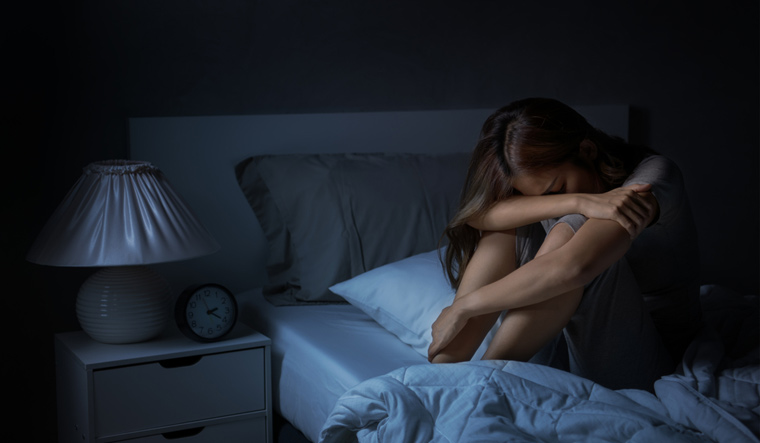Remember Dr Jekyll and Mr Hyde?
The antagonistic representations of the nature of the same person are not fiction. It may happen in reality as well when mood states fluctuate between extremes.
World bipolar day is observed on March 30 every year, on the birthday of Dutch painter Vincent van Gogh — one of the most influential artists in the history of Western art, whose creativity was paralleled with his mental illness. He was posthumously diagnosed with bipolar disorder.
World Bipolar Day is an initiative by the International Society for Bipolar Disorders (ISBD) partnered with the International Bipolar Foundation (IBPF) and the Asian Network of Bipolar Disorders (ANBD).
World Bipolar Day educates and promotes the spread of information on bipolar disorder through international collaborative efforts.
Bipolar disorder: What and how?
Bipolar disorder, previously known as manic depression, is a severe mental disorder characterized by periods of depression and periods of abnormally elevated mood that last from days to weeks. If the elevated mood is severe or associated with psychosis, it is called mania; if it is less severe, it is called hypomania. During mania, an individual behaves or feels abnormally energetic, happy or irritable, and they often make impulsive decisions with little regard for the consequences. During the manic phases, the person may also sleep less. During periods of depression, the individual may experience crying and have a negative outlook on life and poor eye contact with others.
Commonly starting between 20-25 years, Bipolar disorder affects nearly 1 per cent of the global population. When it starts earlier in life, it’s associated with worse outcomes. The presence of this disorder in multiple family members, disrupted sleep patterns, alcohol/cannabis addiction, extreme stress and impaired daily schedule – can all lead to bipolar disorder. Though the exact cause is not yet known. Imbalance in neurotransmitter levels in the brain areas responsible for mood, energy, sleep and functioning as well as impaired nerve-to-nerve signalling in these areas can all lead to Bipolar Disorder.
Bipolar Disorder can be quite severe and debilitating. The frequent swings between a ‘manic’ and ‘depressive’ phase are often undetected and considered to be a normal part of mood fluctuations. If untreated, this illness takes a heavy toll on social life, relationships and professional domains. With time, mood episodes tend to be more frequent and severe. Irritability and restlessness can increase. During the ‘high’ phase (mania), an individual often does not admit or understand that he/she is ill and refuses treatment. The family needs to identify the signs and initiate treatment. Often, hospitalization may also be necessary to deal with an acute episode. The risk of suicide is high. Other mental health issues, such as anxiety disorders and substance use disorders, are commonly associated with bipolar disorder.
Treatment
A holistic approach to treatment is necessary.
Several medicines are used to treat bipolar disorder successfully and the treatment depends on the ‘phase’ of the illness (high or low). Certain medicines called mood stabilizers help the mood to remain stable and prevent the extreme fluctuations that happen in this illness (just like an inverter reduces voltage fluctuations). If there is more than one episode, medicines may need to be continued for a long time, at times throughout life. Stopping medications without discussion with your doctor and simply for the fear of side effects or stigma, is extremely harmful and carries a huge risk of recurrence of this disorder. It is important to discuss one's concerns, the expected effects/side effects and duration of treatment with the psychiatrist well in advance.
Besides, various approaches to psychotherapy (Cognitive Behavior Therapy / Interpersonal Therapy / Social Rhythm Therapy, etc.) are helpful to prevent relapses in Bipolar and maintain mood stability. They are best done by a qualified clinical psychologist in addition to the prescribed medicines. Lifestyle changes are immensely important to keep this disorder at bay, especially regulating your sleep cycle, maintaining proper sleep hygiene and ensuring adequate night-time sleep. Daily exercises, yoga, avoiding alcohol and other addictive substances, proper nutrition and stress management also help.
Spreading the word
It is very important to identify the early signs of this disorder and seek professional help as early as possible. There is no stigma or shame in seeking help. The ‘mania’ or ‘depression’ episodes do not start in a day. Initially, the signs may be easy irritation, disturbed sleep, increased talking, overspending, change in behaviour patterns, reduced social interaction, problems in focusing, feeling or perceiving ‘weird’ sensations, etc. Family members should be on the watch for such symptoms in an individual with bipolar disorder and seek prompt help in case these appear. This prevents a mood episode from escalating further.
This World Bipolar Disorder Awareness Day, let’s understand the illness and spread awareness.
Dr Debanjan Banerjee is a Consultant Neuropsychiatrist, Apollo 24|7 and Apollo Multispecialty Hospitals, Kolkata



